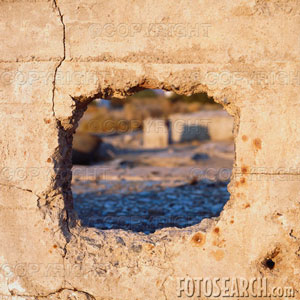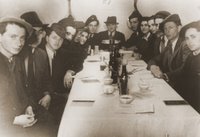Tzaraas Bizman Hazeh - Gam Zu L'Tovah

The Torah in this week's parsha teaches us the concept of tzaraas in one's house. This is where the person's walls become discolored and the person has to call in the kohein to inspect his house. If the discoloration doesn't go away after seven days, he has to knock down the wall(s) where the tzaraas existed.
Rashi points out that there was a hidden positive in this. The Emorites used to hide their jewels and treasures in the walls, and when the Jews with the tzaraas on their walls would knock down the walls they would find the treasure. A typical case of something that at first looks like a bad situation but ends up being all for the best.
Bible critics over the years have criticized the Torah saying that it is outdated. This can be cited as a classic case, tzaraas doesn't exist today. It's definitely not leprosy as we know it. Ever heard of a house with "leprosy"?
We, however, know and believe that the Torah is eternal, and the messages contained therein apply forever and always. For the best proof, ask me sometime about the cow and weasel gemara, amazing stuff, but for another post.
Anyway, anybody that lives in the New York area should remember the storms that we suffered through around Yom Kippur. Many houses were flooded, some badly damaged. I know of one instance where someone basement walls were covered with mold (colored spots on the walls) and the walls needed to be knocked down. Behind the walls, they found GOLD, hidden there by previous owners. I was blown away. It was exactly as Rashi described almost a thousand years ago, on a pasuk in the Torah that was written over three thousand years ago, and still has application today.
"Every cloud has a silver lining" where do you think they got that from?
So keep in mind, when seemingly bad things happen, try and stay positive, it could just be Hashem's way of setting you up for something truly amazing.




